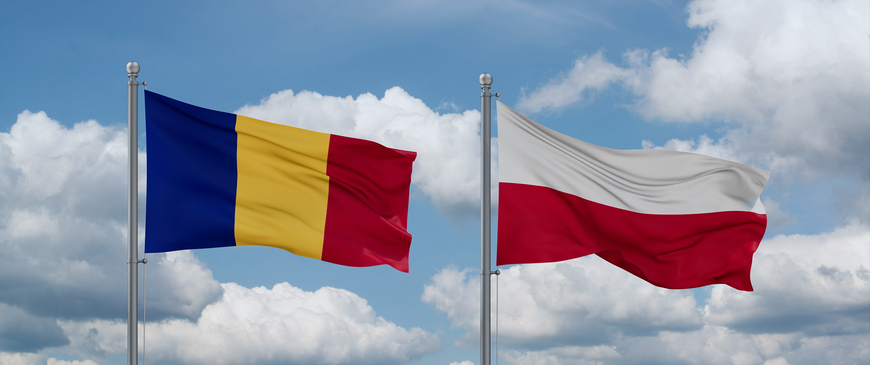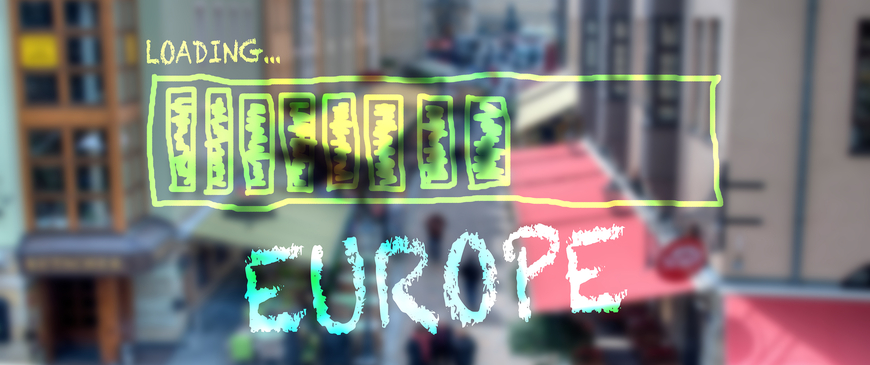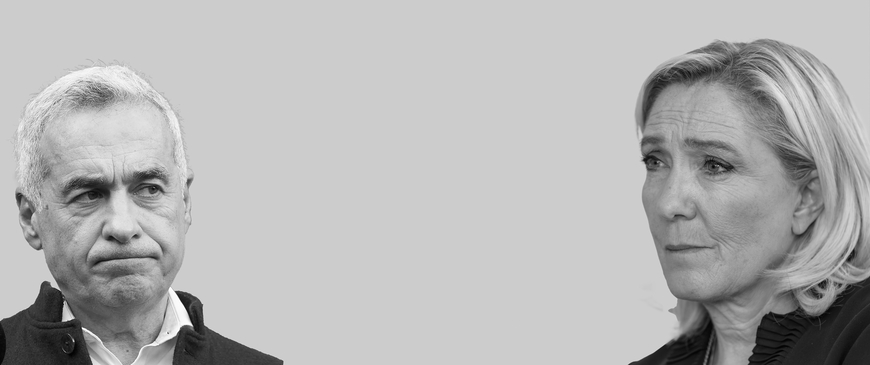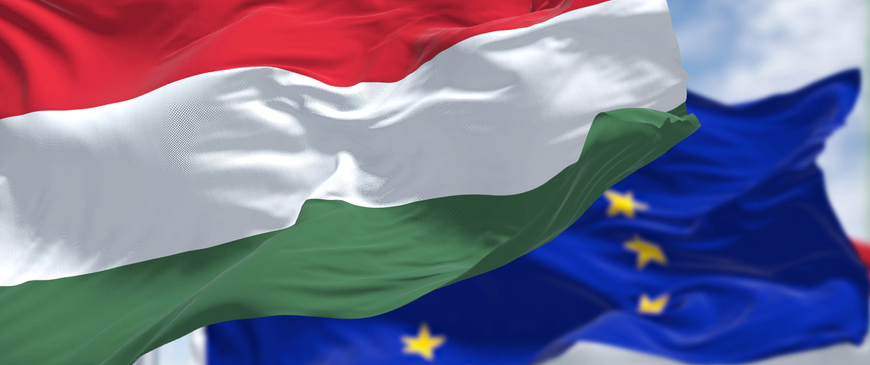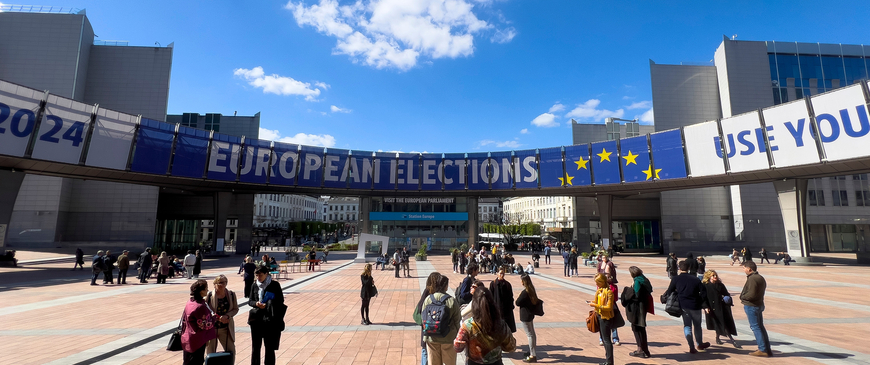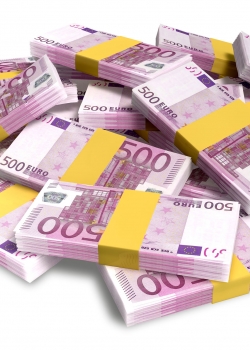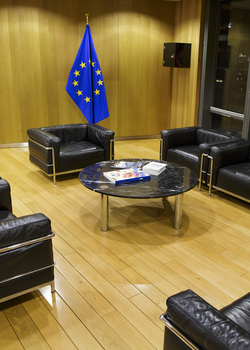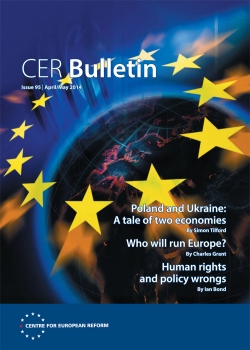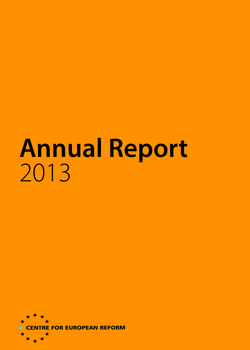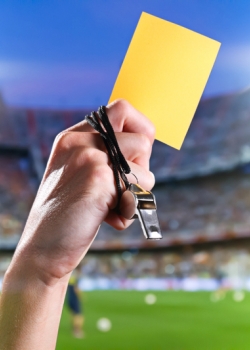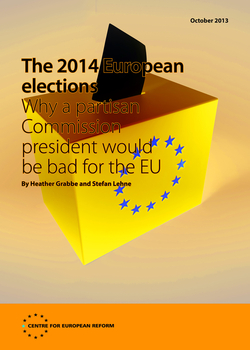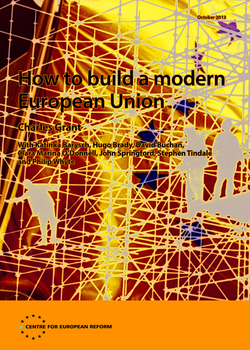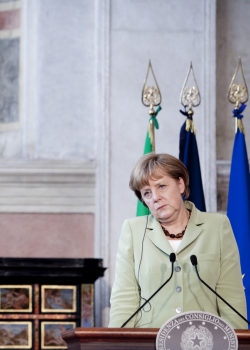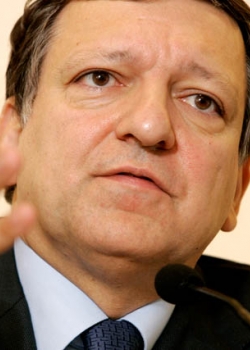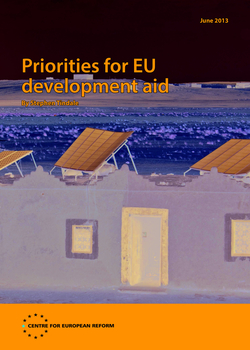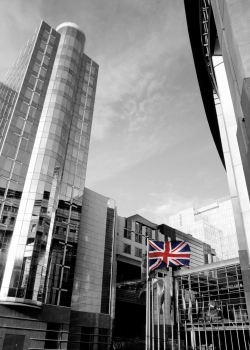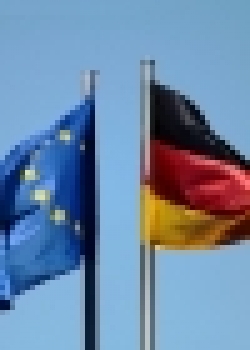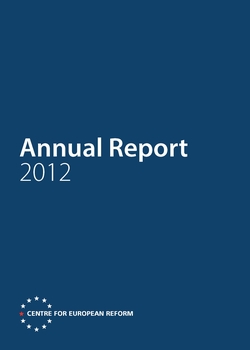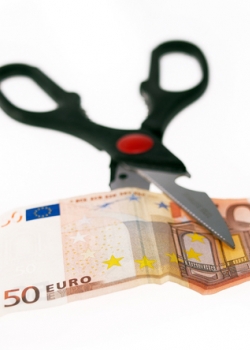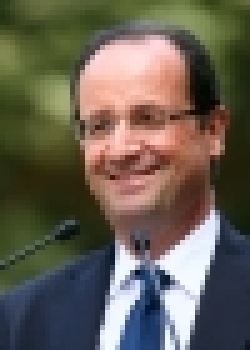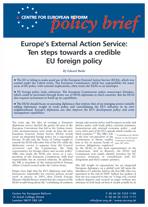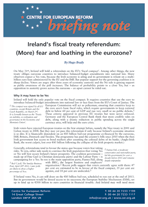EU institutions & treaties
Quantitative easing alone will not do the trick
28 April 2014
In the eurozone, quantitative easing by itself is unlikely to be effective. The European Central Bank needs to change the way it manages people’s expectations, too.
Who will run Europe?
31 March 2014
EU leaders will soon decide who will run the club's institutions. They should choose heavyweights who can deliver far-reaching reforms.
Issue 95 - 2014
31 March 2014
- Poland and Ukraine: A tale of two economies, Simon Tilford
- Who will run Europe?, Charles Grant
- Human rights and policy wrongs, Ian Bond
Annual report 2013
10 February 2014
Charles Grant discusses the challenges facing the EU in 2014, such as the European elections, Britain's slide towards the exit and the continuing travails of the eurozone.
The EU's 'yellow card' comes of age: Subsidiarity unbound?
12 November 2013
National parliamentarians' rejection of a proposed prosecutor for the EU marks their arrival as serious players in how the Union is governed.
The 2014 European elections: Why a partisan Commission president would be bad for the EU
14 October 2013
A strong, independent, non-partisan Commission is vital for the EU and the euro. If political parties nominate its next president, the Commission could not referee EU rules.
How to build a modern European Union
10 October 2013
The CER proposes reforming the EU’s policies and institutions, to foster a more dynamic European economy and to make decision-making more accountable.
Continuity and change in Germany's EU policy
06 September 2013
Germany's EU policy is shifting. It will seek a 'grand bargain' with France but be tougher on the Commission. Treaty change is moving off the agenda.
What is wrong with the European Commission?
27 June 2013
The Commission should be strong and independent. But as it becomes dependent on the European Parliament, it is losing the respect of national capitals.
Priorities for EU development aid
14 June 2013
The European Commission should manage more development aid. This should be spent on programmes which best meet human needs, irrespective of foreign policy priorities.
Can national parliaments make the EU more legitimate?
10 June 2013
The euro crisis has hit the EU's legitimacy. Part of the answer is to give national parliamentarians a bigger role in the EU.
The EU's Rubik's cube: Who will lead after 2014?
03 April 2013
The EU will appoint new leaders after the 2014 European elections. Who are the likely candidates and are they suitable?
Germany’s plans for treaty change – and what they mean for Britain
28 March 2013
Germany is no longer pushing for a new EU treaty. This makes it harder for David Cameron to renegotiate the terms of British membership.
Annual report 2012
08 February 2013
Charles Grant analyses Britain's difficult relationship with the EU and looks back on what the CER did in 2012.
Much ado about little: Britain and the EU budget
07 November 2012
Britain is expending considerable political capital on freezing the EU budget. It would be best to push for reform of how the budget is spent.
Alice in euroland: What political union for the single currency?
09 October 2012
The eurozone needs to be embedded in a 'political union' if it is to work better. The question is: what sort of political union?
Hollande, the Germans and 'political union'
25 September 2012
François Hollande wants a more equal Franco-German relationship. But tensions over managing the eurozone crisis and reforming EU treaties are straining that relationship.
Europe's External Action Service: Ten steps towards a credible EU foreign policy
04 July 2012
The EU's new diplomatic service has been widely criticised. Although the EEAS has achieved more than many acknowledge, it can still do a lot better.
The EU must fight corruption and defend the rule of law
14 June 2012
Policy-makers in Brussels worry increasingly about corruption, national mal-administration and the rule of law in the EU. New thinking is needed to address such concerns.
Ireland's fiscal treaty referendum: (More) fear and loathing in the eurozone?
11 May 2012
Ireland votes on the EU’s new fiscal compact on May 31st. Hugo Brady assesses the chances of a Yes and the consequences of a No.

